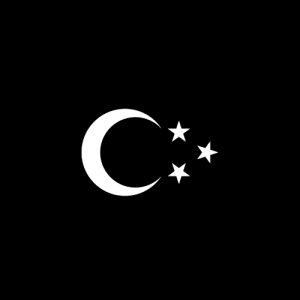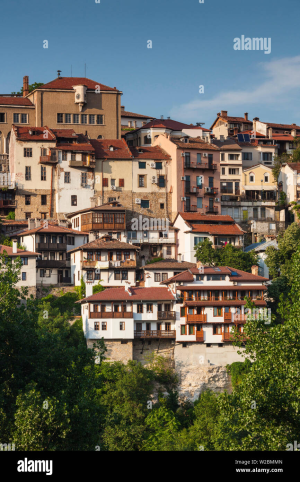Kankan
Ọba
- Joined
- Nov 26, 2024
- Messages
- 117

Alawiyyas - Modern Age Civ
After centuries of Ottoman rule, control over Egypt began to wane with the emergence of the Khedivate under Muhammad Ali Pasha of the Alawiyya Dynasty, which acted independently of the Ottoman Empire and at times managed to overpower them in war, whilst also greatly industrialising Egypt and significantly reforming Egypt to be more self-sufficient and overseeing the construction of the Suez Canal. However, the arrival of the expanding British Empire brought an end to the Khedivate and the beginning of British rule over Egypt until it was later ended with a return to Alawiyya rule over an independent Egypt until monarchical rule in Egypt finally came to an end at the hands of Mohamed Naguib and Gamal Abdel Nasser, establishing the Republic of Egypt.
Unique Ability:
Legacy of Muhammad Ali/Khedival Reforms (depends on if Muhammad Ali Pasha is made a leader or not): Reduced production towards buildings created in settlements on Navigable Rivers.
Attributes:
Militaristic
Expansionist
Civic Tree
Canals
Tier 1: Naval units gained additional movement on friendly Navigable Rivers, unlocks the unique Canal improvement.
Tradition - Mahmudiyya: Cities connected via Canal gain an extra boost to yields from domestic trade routes.
Tier 2: Resources provide an extra boost to settlement yields if the settlement is adjacent to a Canal.
Tradition - Farms adjacent to Canals gain an additional boost to food yields.
Military Reorganisation
Tier 1: Reduced production towards military units in settlements adjacent to Navigable Rivers, unlocks the unique Fellahin Infantry unit.
Tier 2: Military units gain extra Combat Strength when defending.
Tradition - Convention of Kütahya: +5 Happiness to settlements conquered in a war.
Industrialisation and Nationalisation
Tier 1: Factories created in settlements adjacent to Navigable Rivers produce +2 Gold, unlocks the Alabaster Mosque wonder.
Tradition - Suez Canal: Foreign Trade Routes passing through your canals now provide a fraction of the Gold yields of the Route to you.
Tier 2: Reduced production towards building factories in settlements adjacent to Navigable Rivers, unlocks the Tajr Civilian Unit
Associated Wonder - Alabaster Mosque:
- Navigable Rivers provide a Happiness adjacency bonus to all of your settlements
Unique Military Unit - Fellahin Infantry
- Unique melee unit. +5 combat strength, cheaper to produce for cities with farms or connected to towns with farms.
Unique Civilian Unit - Tajr
- Unique Unit that repalces the Merchant, can only be used in settlements adjacent to Navigable Rivers, increases Gold yields when the settlement has a luxury resource and immediately creates a road connecting the Town to a City if used in a Town.
Unique Improvement - Canal
- Can only be built adjacent to a Navigable River or adjacent to a canal connected to a Navigable River. Each Canal allows units to pass through it like with a Navigable River, provides settlements containing a Canal with additional Production and Food yields, has a chance of causing a Growth Event that can either cause the settlement to grow or shrink in population.
City List
El-Qahira
Eskenderiyya - (Alexandria) Today, is the second largest city in Egypt and is along the Meditteranean
Rashid - Also known as Rosetta, is a port city in Egypt along the Nile Delta
Domyat - Also known as Damietta, is a port city in Egypt along the Nile Delta
Es-Suways - (Suez) Today is a seaport city in Egypt, and also is where the Suez Canal is located
El-Faiyum - A city in Lower Egypt
Minya - A city in Middle Egypt
Beni Suef - A city in Lower Egypt, was a chief Lower Egyptian town under Muhammad Ali
Asyut - A city in Middle Egypt, also has the highest Coptic Christian concentration in Egypt today
El-Kharga - A town in Egypt located within an oasis of the same name
Girga - The oldest continuously-inhabited city in Africa
Aswan - A city in Upper Egypt
Wadi Halfa - A city in Sudan
Donqolah - Today, Dongola in Sudan
Shendi - Small city in Sudan, was attacked by Muhammad Ali Pasha in 1823
Khartoum - Today the capital of Sudan
Omdurman - Today the second most populous city in Sudan and is northwest of Khartoum
Sennar - A city in Sudan
El Fasher - A city in Sudan
Juba - Today, the capital of South Sudan
Massawa - Today, a city in Eritrea
Hims - Also known as Homs, a city in Syria which was a defining capture of the first Egyptian-Ottoman war
Djibouti - Today the capital of Djibouti
Unlocks:
Play as Egypt in the Antiquity Age
Play as Abbasids in the Exploration Age
Declare war on a former ally
Last edited:




